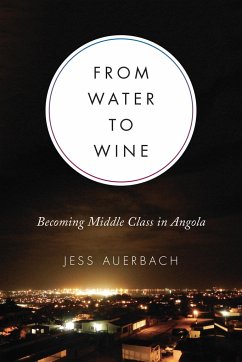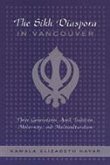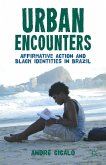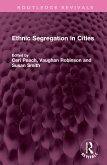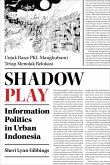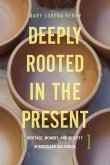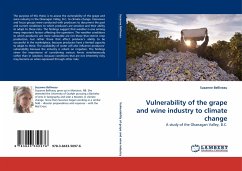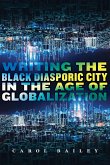- Gebundenes Buch
- Merkliste
- Auf die Merkliste
- Bewerten Bewerten
- Teilen
- Produkt teilen
- Produkterinnerung
- Produkterinnerung
Part monograph, part methods handbook, and including poetry, photos and other media, this highly original work explores the emergent middle class in Angola through the lens of the senses.
Andere Kunden interessierten sich auch für
![The Sikh Diaspora in Vancouver The Sikh Diaspora in Vancouver]() Kamala NayarThe Sikh Diaspora in Vancouver101,99 €
Kamala NayarThe Sikh Diaspora in Vancouver101,99 €![Urban Encounters Urban Encounters]() A. CicaloUrban Encounters63,99 €
A. CicaloUrban Encounters63,99 €![Ethnic Segregation in Cities Ethnic Segregation in Cities]() Ethnic Segregation in Cities137,99 €
Ethnic Segregation in Cities137,99 €![Shadow Play Shadow Play]() Sheri Lynn GibbingsShadow Play100,99 €
Sheri Lynn GibbingsShadow Play100,99 €![Deeply Rooted in the Present Deeply Rooted in the Present]() Mary Lorena KennyDeeply Rooted in the Present60,99 €
Mary Lorena KennyDeeply Rooted in the Present60,99 €![Vulnerability of the grape and wine industry to climate change Vulnerability of the grape and wine industry to climate change]() Suzanne BelliveauVulnerability of the grape and wine industry to climate change51,99 €
Suzanne BelliveauVulnerability of the grape and wine industry to climate change51,99 €![Writing the Black Diasporic City in the Age of Globalization Writing the Black Diasporic City in the Age of Globalization]() Carol BaileyWriting the Black Diasporic City in the Age of Globalization177,99 €
Carol BaileyWriting the Black Diasporic City in the Age of Globalization177,99 €-
-
-
Part monograph, part methods handbook, and including poetry, photos and other media, this highly original work explores the emergent middle class in Angola through the lens of the senses.
Hinweis: Dieser Artikel kann nur an eine deutsche Lieferadresse ausgeliefert werden.
Hinweis: Dieser Artikel kann nur an eine deutsche Lieferadresse ausgeliefert werden.
Produktdetails
- Produktdetails
- Verlag: University of Toronto Press
- Seitenzahl: 256
- Erscheinungstermin: 4. Februar 2020
- Englisch
- Abmessung: 231mm x 160mm x 20mm
- Gewicht: 499g
- ISBN-13: 9781487506414
- ISBN-10: 1487506414
- Artikelnr.: 55797354
- Herstellerkennzeichnung
- Libri GmbH
- Europaallee 1
- 36244 Bad Hersfeld
- 06621 890
- Verlag: University of Toronto Press
- Seitenzahl: 256
- Erscheinungstermin: 4. Februar 2020
- Englisch
- Abmessung: 231mm x 160mm x 20mm
- Gewicht: 499g
- ISBN-13: 9781487506414
- ISBN-10: 1487506414
- Artikelnr.: 55797354
- Herstellerkennzeichnung
- Libri GmbH
- Europaallee 1
- 36244 Bad Hersfeld
- 06621 890
Jess Auerbach is a post-doctoral scholar at Stellenbosch University in South Africa.
List of Images
Acknowledgments
Interview Report
Preface
Proprioception
Introduction: Where Petrol Is Cheaper than Water: Life in Capitalismo
selvagem
The Back Story
Representing "Africa"?
On Making Sense in the Writing
What the Book Is Actually About
How the Research Was Done
How to Read This Book
Core Concepts
Interlude: A Brief History of Angola
Illustrated by Elinor Driver
Smell
1. The Smell of Success: Perfume, Beauty, Sweat, Oil
Read with Your Nose
Conditioning the Air: Space and Control
Class, Perfume, Dream: Aspiration and Authenticity
Interlude: Recording Fieldwork
Notes
Objects
Structured Observations of Space
Touch
2. Touch and the Tactile: The Textures of Scouting in Capitalismo selvagem
Seeing through the Skin
Making the Mafia
Stitching Pano Pants
Catching Slipping Children
Lighting the Fire as Service
Building the New Man
Choosing Appropriate T-Shirts
Practicing Peace
Interlude: Poems 1
Fatherhood
Radio Building
Seven Women
Buying Cloth
Fátima’s Mother, on Christmas Day 2013
The Cuban Help
The Driver
Taste
3. Changing Tastes: Palates and the Possible
Recipes
The Man Who Made Cake, Dona Maria, and the Sushi Chef
Oral Histories: The Stories of Two Lives
Interlude: Photo Essay 1: The Flavors of Peace
Interlude: Photo Essay 2: Choices and Consumption
Sound
4. Music, Fofoca, and the News: Sound, Space, and Orientation
Sound Readings: Spectrographs, Annotation, Language
Cold War Echoes: Higher Education, Ideology, and Contested Duties
Interlude: Poems 2
Estrelinha (Little Star)
Birds on Campus
João, Collapsing
Dona Maria Serving Soup
Dona Inês
Two Photographers
Cinema Church
Yoga Teacher
Interlude: Photo Essay 3: Childhoods
Interlude: Photo Essay 4: Leisure
Sight
5. National Rebranding
The Selfie and the Other
National Rebranding: Guarantee Your Children a Better Past
Biopolitical Screens: Frames of Vision
Laughing on the Internet
Insta Lies or Insta Truths?
Fieldwork Ethics: Seven Afterimages
Interlude: Photo Essay 5: Art
Interlude: Photo Essay 6: Architecture
Curiosity
Conclusion: Attending the Beautiful in the Light of What We Know
Capitalismo selvagem in Uncertain Times
The Government Has Gone on Holiday, but Maybe João Lourenço Will Bring It
Back
Practicing Peace ... Again
Notes
Indicative Bibliography
References
Index
Acknowledgments
Interview Report
Preface
Proprioception
Introduction: Where Petrol Is Cheaper than Water: Life in Capitalismo
selvagem
The Back Story
Representing "Africa"?
On Making Sense in the Writing
What the Book Is Actually About
How the Research Was Done
How to Read This Book
Core Concepts
Interlude: A Brief History of Angola
Illustrated by Elinor Driver
Smell
1. The Smell of Success: Perfume, Beauty, Sweat, Oil
Read with Your Nose
Conditioning the Air: Space and Control
Class, Perfume, Dream: Aspiration and Authenticity
Interlude: Recording Fieldwork
Notes
Objects
Structured Observations of Space
Touch
2. Touch and the Tactile: The Textures of Scouting in Capitalismo selvagem
Seeing through the Skin
Making the Mafia
Stitching Pano Pants
Catching Slipping Children
Lighting the Fire as Service
Building the New Man
Choosing Appropriate T-Shirts
Practicing Peace
Interlude: Poems 1
Fatherhood
Radio Building
Seven Women
Buying Cloth
Fátima’s Mother, on Christmas Day 2013
The Cuban Help
The Driver
Taste
3. Changing Tastes: Palates and the Possible
Recipes
The Man Who Made Cake, Dona Maria, and the Sushi Chef
Oral Histories: The Stories of Two Lives
Interlude: Photo Essay 1: The Flavors of Peace
Interlude: Photo Essay 2: Choices and Consumption
Sound
4. Music, Fofoca, and the News: Sound, Space, and Orientation
Sound Readings: Spectrographs, Annotation, Language
Cold War Echoes: Higher Education, Ideology, and Contested Duties
Interlude: Poems 2
Estrelinha (Little Star)
Birds on Campus
João, Collapsing
Dona Maria Serving Soup
Dona Inês
Two Photographers
Cinema Church
Yoga Teacher
Interlude: Photo Essay 3: Childhoods
Interlude: Photo Essay 4: Leisure
Sight
5. National Rebranding
The Selfie and the Other
National Rebranding: Guarantee Your Children a Better Past
Biopolitical Screens: Frames of Vision
Laughing on the Internet
Insta Lies or Insta Truths?
Fieldwork Ethics: Seven Afterimages
Interlude: Photo Essay 5: Art
Interlude: Photo Essay 6: Architecture
Curiosity
Conclusion: Attending the Beautiful in the Light of What We Know
Capitalismo selvagem in Uncertain Times
The Government Has Gone on Holiday, but Maybe João Lourenço Will Bring It
Back
Practicing Peace ... Again
Notes
Indicative Bibliography
References
Index
List of Images
Acknowledgments
Interview Report
Preface
Proprioception
Introduction: Where Petrol Is Cheaper than Water: Life in Capitalismo
selvagem
The Back Story
Representing "Africa"?
On Making Sense in the Writing
What the Book Is Actually About
How the Research Was Done
How to Read This Book
Core Concepts
Interlude: A Brief History of Angola
Illustrated by Elinor Driver
Smell
1. The Smell of Success: Perfume, Beauty, Sweat, Oil
Read with Your Nose
Conditioning the Air: Space and Control
Class, Perfume, Dream: Aspiration and Authenticity
Interlude: Recording Fieldwork
Notes
Objects
Structured Observations of Space
Touch
2. Touch and the Tactile: The Textures of Scouting in Capitalismo selvagem
Seeing through the Skin
Making the Mafia
Stitching Pano Pants
Catching Slipping Children
Lighting the Fire as Service
Building the New Man
Choosing Appropriate T-Shirts
Practicing Peace
Interlude: Poems 1
Fatherhood
Radio Building
Seven Women
Buying Cloth
Fátima’s Mother, on Christmas Day 2013
The Cuban Help
The Driver
Taste
3. Changing Tastes: Palates and the Possible
Recipes
The Man Who Made Cake, Dona Maria, and the Sushi Chef
Oral Histories: The Stories of Two Lives
Interlude: Photo Essay 1: The Flavors of Peace
Interlude: Photo Essay 2: Choices and Consumption
Sound
4. Music, Fofoca, and the News: Sound, Space, and Orientation
Sound Readings: Spectrographs, Annotation, Language
Cold War Echoes: Higher Education, Ideology, and Contested Duties
Interlude: Poems 2
Estrelinha (Little Star)
Birds on Campus
João, Collapsing
Dona Maria Serving Soup
Dona Inês
Two Photographers
Cinema Church
Yoga Teacher
Interlude: Photo Essay 3: Childhoods
Interlude: Photo Essay 4: Leisure
Sight
5. National Rebranding
The Selfie and the Other
National Rebranding: Guarantee Your Children a Better Past
Biopolitical Screens: Frames of Vision
Laughing on the Internet
Insta Lies or Insta Truths?
Fieldwork Ethics: Seven Afterimages
Interlude: Photo Essay 5: Art
Interlude: Photo Essay 6: Architecture
Curiosity
Conclusion: Attending the Beautiful in the Light of What We Know
Capitalismo selvagem in Uncertain Times
The Government Has Gone on Holiday, but Maybe João Lourenço Will Bring It
Back
Practicing Peace ... Again
Notes
Indicative Bibliography
References
Index
Acknowledgments
Interview Report
Preface
Proprioception
Introduction: Where Petrol Is Cheaper than Water: Life in Capitalismo
selvagem
The Back Story
Representing "Africa"?
On Making Sense in the Writing
What the Book Is Actually About
How the Research Was Done
How to Read This Book
Core Concepts
Interlude: A Brief History of Angola
Illustrated by Elinor Driver
Smell
1. The Smell of Success: Perfume, Beauty, Sweat, Oil
Read with Your Nose
Conditioning the Air: Space and Control
Class, Perfume, Dream: Aspiration and Authenticity
Interlude: Recording Fieldwork
Notes
Objects
Structured Observations of Space
Touch
2. Touch and the Tactile: The Textures of Scouting in Capitalismo selvagem
Seeing through the Skin
Making the Mafia
Stitching Pano Pants
Catching Slipping Children
Lighting the Fire as Service
Building the New Man
Choosing Appropriate T-Shirts
Practicing Peace
Interlude: Poems 1
Fatherhood
Radio Building
Seven Women
Buying Cloth
Fátima’s Mother, on Christmas Day 2013
The Cuban Help
The Driver
Taste
3. Changing Tastes: Palates and the Possible
Recipes
The Man Who Made Cake, Dona Maria, and the Sushi Chef
Oral Histories: The Stories of Two Lives
Interlude: Photo Essay 1: The Flavors of Peace
Interlude: Photo Essay 2: Choices and Consumption
Sound
4. Music, Fofoca, and the News: Sound, Space, and Orientation
Sound Readings: Spectrographs, Annotation, Language
Cold War Echoes: Higher Education, Ideology, and Contested Duties
Interlude: Poems 2
Estrelinha (Little Star)
Birds on Campus
João, Collapsing
Dona Maria Serving Soup
Dona Inês
Two Photographers
Cinema Church
Yoga Teacher
Interlude: Photo Essay 3: Childhoods
Interlude: Photo Essay 4: Leisure
Sight
5. National Rebranding
The Selfie and the Other
National Rebranding: Guarantee Your Children a Better Past
Biopolitical Screens: Frames of Vision
Laughing on the Internet
Insta Lies or Insta Truths?
Fieldwork Ethics: Seven Afterimages
Interlude: Photo Essay 5: Art
Interlude: Photo Essay 6: Architecture
Curiosity
Conclusion: Attending the Beautiful in the Light of What We Know
Capitalismo selvagem in Uncertain Times
The Government Has Gone on Holiday, but Maybe João Lourenço Will Bring It
Back
Practicing Peace ... Again
Notes
Indicative Bibliography
References
Index

